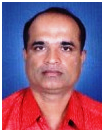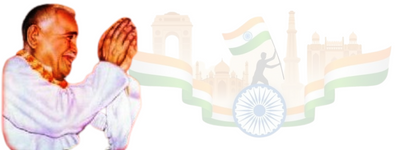Department of Mathematics
About Department
- Name of the Department : Mathematics - Year of Establishment: 1992 - Name of the Course offered: B. Sc. (Bachelor of Science) - Course Pattern : CBCS/Elective - About department: The Department of Mathematics has been in existence since the inception of this college in 1992 up to B. Sc. Part I and B. Sc. Part II level. Mathematics is the science and study of quality, structure, space, and change. Mathematicians seek out patterns, formulate new conjectures, and establish truth by rigorous deduction from appropriately chosen axioms and definitions. Mathematics provides an effective way to building mental discipline and encourages logical reasoning and mental rigor.
Aim
The aims of teaching and learning Mathematics are to encourage and enable students to: • Recognize thatMmathematics permeates the world around us, • Appreciates the usefulness, power and beauty of mathematics, • Enjoy Mathematics and develop patience and persistence when problem solving, • Develop the knowledge, skills and attitudes necessary to pursue further studies in Mathematics, • Become confident in using mathematics to analyses and solve problems.
Objectives
In the first and second year of the course, students should be able to: • Know and demonstrate understanding of the concepts from the five branches of Mathematics ( Algebra, Geometry, Differential equations, Discrete Mathematics and Real Analysis), • Select and apply general rules correctly to solve problems including those in real-life context.
| Photo | Name | Qualification | Designation | Date of Appointment | Resume |
|---|---|---|---|---|---|
 |
PATIL VINAYAK KALLAPA | M. Sc., M. Phil., Ph. D. | Associate Professor | 21/06/1993 | View |
Programs Outcomes’ (POs) of Mathematics
The opening years of the twenty-first century have been remarkable ones for the mathematical sciences. Major break-through has been made on fundamental research problems. The ongoing trend for the mathematical sciences to play an essential role in the physical and biological sciences, engineering, medicine, economics, finance and social science has expanded dramatically. The mathematical sciences have become integral to many emerging industries, and the increasing technological sophistication of our armed forces has made the mathematical sciences central to national defense. A striking feature of this expansion in the uses of the mathematical sciences has been parallel expansion in kinds of mathematical sciences has been parallel expansion in the kinds of mathematical science ideas that are being used.
Programs Specific Outcomes (PSOs) of Mathematics
Students will able to:
· Describe several diverse examples of mathematics not in secondary and higher secondary school mathematics,
· Solve problems using mathematics in unfamiliar settings, and
· Explain why mathematical thinking is valuable in daily life,
· Demonstrate algebraic the use of mathematical reasoning by justifying and generalizing patterns and relationships,
· Display mystery of basic computational skills and recognize the appropriate use of technology to ensure those skills,
· Apply transformations and use symmetry to analyze mathematical situations.
Course Outcomes(COs) of Mathematics
· Differential Calculus: Hyperbolic Functions, Higher Order Derivatives
· Calculus: Mean Value Theorems and Indeterminate Forms, Limit and Continuity
· Differential Equations: First Order Differential Equations, Linear Differential Equations
· Partial Differential Equations: Lagrang’s Equation, Charpit’s Method
- Real Analysis: Sequence and Series
· Algebra: Matrices, Group Theory, Ring, Field and Integral Domain
| Sr.No | Date | Event/Activity Name | Report |
|---|

